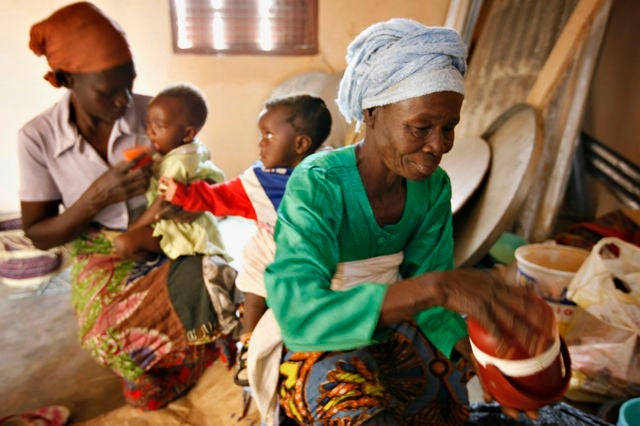Ghana makes inroads into malnutrition in rural north
Over 700 healthcare workers have been trained by the Ghana Health Service and USAID on how to manage and prevent the condition
Ghana makes inroads into malnutrition in rural north

Like many countries around the world, Ghana has been working diligently to reduce malnutrition, which can have devastating effects on the physical and mental development of children and lead to long-term health issues and lower academic performance.
While the country has made progress, almost 7 percent of Ghanaian children under 5 are still affected by wasting, the most destructive form of malnutrition. Like elsewhere, preventing and treating malnutrition in Ghana can be challenging due to a lack of resources for community health outreach, among other factors.
In northern Ghana, where resources are scarce, the situation is particularly dire, with high rates of under-5 malnutrition and severe anemia, as well as a child mortality rate that's higher than rest of the country.
However, a partnership between the Ghana Health Service and the Ministry of Local Government and Rural Development and USAID Advancing Nutrition is helping the government make new inroads into its malnutrition challenges, especially in northern Ghana, according to an article published by the US agency.
In collaboration with the Ghana Health Service, USAID has trained over 700 health workers across 17 districts in northern Ghana on managing and preventing malnutrition. With this knowledge, healthcare providers can now integrate nutrition and primary healthcare services.
Overall, USAID said its investments have enabled the Ghanaian health system to reach over 185,000 children under two years with community-based nutrition services and over 68,000 pregnant women with nutrition-specific interventions in just one year across the districts.
According to Wedam Caesar Avugu, a community health nurse at Yikpabongo Health Center in northern Ghana, he and his colleagues had lacked resources, such as fuel and motorbikes, to perform outreach visits to remote communities to detect cases of acute malnutrition and provide essential services such as growth monitoring and breastfeeding counseling. “For several months, we were not able to identify and manage cases of acute malnutrition in children,” he said.
Now, however, with USAID support for training and transportation resources, health workers screened nearly 300 children for malnutrition across four districts in just two months, the USAID report said. These healthcare workers can carry out more home visits to monitor the progress of malnourished children undergoing treatment, and they can offer extra nutritional support to pregnant and breastfeeding women to better prevent malnutrition in children.
Since receiving advice from health workers trained by USAID to use local ingredients in preparing more nutritious meals, caregivers in the community of Tuvu in northern Ghana have observed significant improvements in the health of their children, it said.
“I am seeing changes in Fadlan, he is gaining weight day by day … when the nurse visits us, he tells us to use bean leaves, kenaf leaves, baobab leaves, dawada, soybeans, and other locally available ingredients to prepare nutritious food for the child. I thank the nurse for visiting us from time to time to check on Fadlan and advise us on what to do to make my nephew grow well,” Shitu Iddrisu, the boy's aunt, was quoted as saying.
Sadia Alhassan, a mother from Tuvu whose child has also received nutritional support from health care workers, was further quoted as saying: “I now know the local ingredients that I need to add to the child’s food and fruits to help her recover from malnutrition. I add turkey berries, bean seeds, bean leaves, and jute leaves to the meat and fish to prepare stews and soups for the child. I can see that she is growing well now."
How can we help you?
believes that the quickest path to improving health outcomes to identify positive outliers in health and help leaders implement lessons in their own countries.
With our network of in-country and cross-country partners, we research countries that have made extraordinary progress in important health outcomes and share actionable lessons with public health decisionmakers.
Our research can support you to learn about a new issue, design a new policy, or implement a new program by providing context-specific recommendations rooted in Exemplar findings. Our decision-support offerings include courses, workshops, peer-to-peer collaboration support, tailored analyses, and sub-national research.
If you'd like to find out more about how we could help you, please click . Please consider so you never miss new insights from Exemplar countries. You can also follow us on Twitter and LinkedIn.
